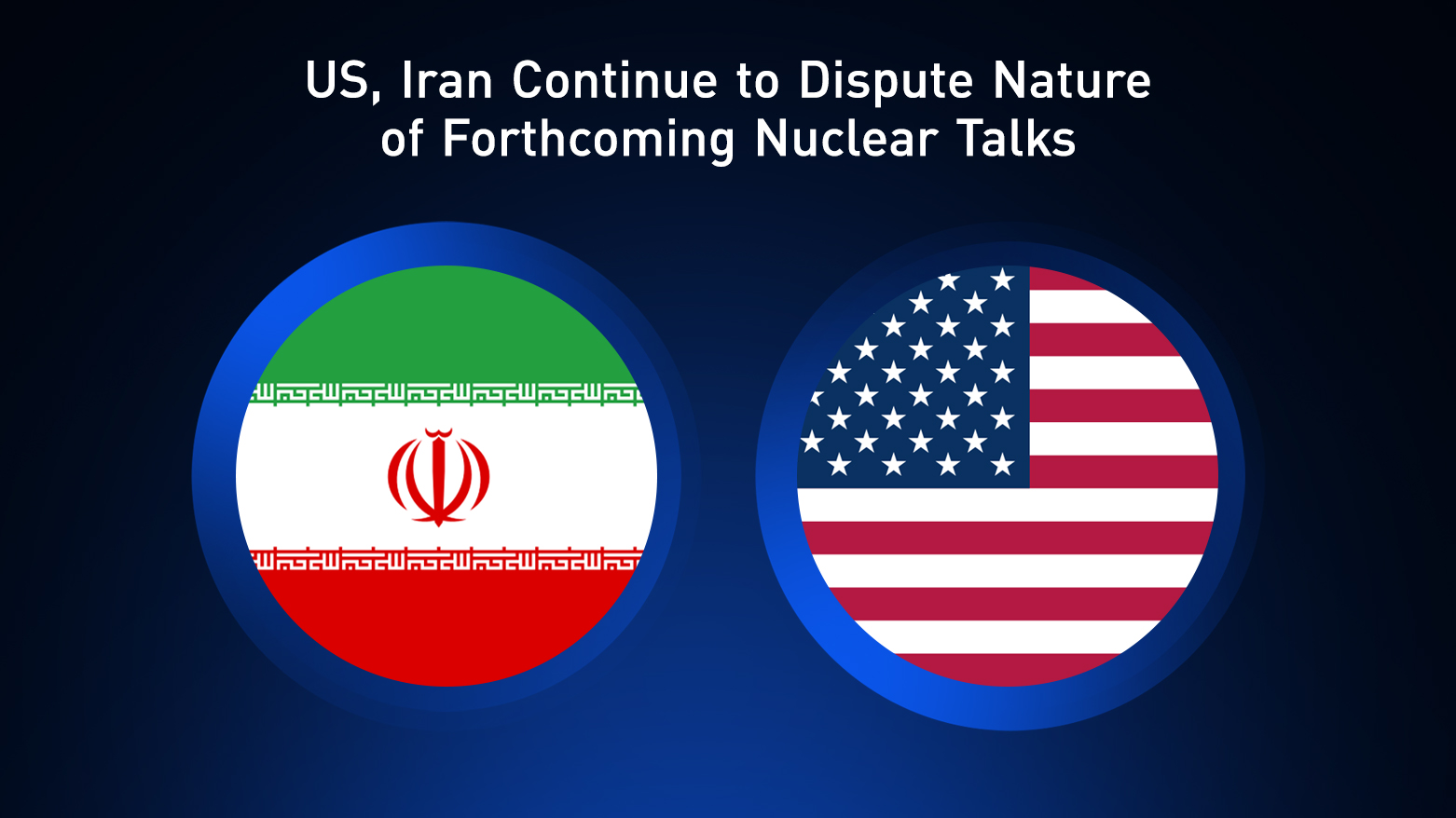US, Iran Continue to Dispute Nature of Forthcoming Nuclear Talks
It remains to be seen just what will happen in Oman and how the talks will be conducted.

WASHINGTON DC, United States (Kurdistan 24) - Washington and Tehran continued on Tuesday to offer competing versions of the talks that will be held later this week on Iran’s nuclear program.
The U.S. maintained there would be direct talks. The Iranians said the talks would be indirect.
Yet as these are the first such talks with Iran under Donald Trump’s presidency, it is useful to begin by noting the points that are not in dispute.
The discussions will be held in Oman, and they will occur at a high level. Trump’s envoy, Steve Witkoff, will lead the talks on the U.S. side, while Foreign Minister Abbas Araghchi will lead the Iranian delegation.
Read More: US, Iran to Hold Nuclear Talks, amid Apparent Disagreement with Israel
Moreover, Kurdistan 24’s initial suggestion that Israel was not happy with President Donald Trump’s surprise opening toward Iran was subsequently confirmed.
Read More: Israel's Netanyahu says 'military option inevitable' if US-Iran nuclear talks drag on
The U.S. Position
Journalists confronted State Department Spokesperson Tammy Bruce in Tuesday’s press briefing over the contradiction between the U.S. description of the talks and that of the Iranians.
In making his surprise announcement on Monday, while seated next to Israeli Prime Minister Benjamin Netanyahu, U.S. President Donald Trump said the talks would be direct. Iranian officials were quick to contradict him, saying they would be indirect.
Repeatedly pressed on this point, Bruce settled for affirming, “There’s a meeting,” and “how the participants decide on how to frame that meeting is completely up to them.”
“This has been described to me as something that is a matter of determining what’s possible in the conversations,” she added. “It’s a touchback.”
At the White House, Press Secretary Karoline Leavitt echoed Trump’s aggressive tone, even as she suggested that Tehran was moving toward accommodating the U.S. position.
“The president has reimposed crippling sanctions on the Iranian regime, and he’s made it very clear to Iran they have a choice to make,” Leavitt said. “You can strike a deal with the president. You can negotiate, or there will be hell to pay.”
“As the president said yesterday,” she continued, “if they don’t choose to move forward with diplomacy and a deal, which is the direction we do see them headed in, there will be grave consequences.”
Yet, as The New York Times subsequently wrote, “So far, the gap between the two sides appears huge.”
“The Iranians sound like they are looking for an updated version of the Obama-era agreement, which limited Iran’s stockpiles of nuclear material,” the Times explained. “The Americans want to dismantle a vast nuclear fuel enrichment infrastructure, the country’s missile program and Tehran’s longtime support for Hamas, Hezbollah and other proxy forces.”
The Iranian Position
The Islamic Republic News Agency (IRNA) reported on the U.S. position, as expressed on Tuesday by its spokespersons. It noted their repeated insistence that the talks would be direct, but IRNA also quoted Iranian officials to the contrary.
“Foreign Minister Abbas Araghchi has said several times that the format of the negotiations would be ‘indirect,’” IRNA said, and “on Tuesday evening, Araghchi said Washington has agreed to hold indirect negotiations.”
IRNA quoted him as saying, “As long as ‘maximum pressure’ and threats exist, there is no ground for fair negotiations, and we will not hold direct negotiations.”
Thus, it remains to be seen just what will happen in Oman and how the talks will be conducted. Indeed, this difficulty may continue for some time, even after the meeting.
After all, Washington and Tehran remain at sharp odds, and each party will want to present the outcome as a victory for its own side.
